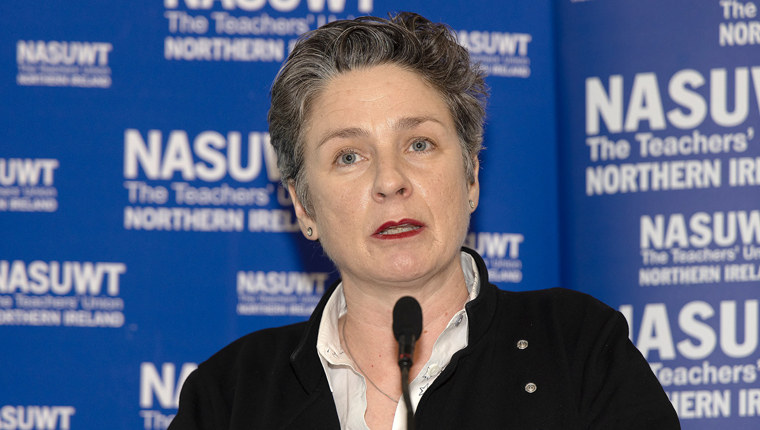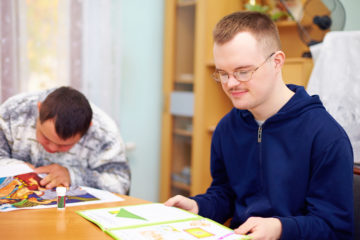
Education Support is a charity that works to support the workforce and helps schools, colleges and universities to improve the mental health and wellbeing of their staff throughout the UK. It also carries out research and advocates for changes in Government policy to benefit the profession.
We spoke to its chief executive about the charity’s work, the complex socio-economic issues facing schools and teaching staff, burnout among the profession, workplace culture, and practical steps teachers can take to improve their mental health and wellbeing.
Sinéad McBrearty said the charity she leads, which was set up in 1877, is open to anyone working in any educational setting and provides free resources, a confidential helpline staffed by clinically-trained counsellors and runs projects aimed at providing high-quality professional support.
As with the NASUWT it can often be the case that teachers come to the charity when in particularly acute need and distress and the free helpline supports between 400 and 500 people a year who are clinically assessed to be at risk of suicide.
“One of the reasons we are so committed to providing the helpline is that now people don’t have reliable access to mental health support – the waiting lists are extremely long so we feel it is really important to try and fill that gap right now in particular.”
Sinead said the majority of those seeking support are dealing with issues ranging from dealing with a difficult event in school, an encounter with a colleague, pupil or parent or perhaps a specific safeguarding issue that has stayed with them or taking a higher than normal emotional burden on them.
She said: “People shouldn’t only feel they can only call the helpline in real distress, we are here for everything. Our team is very able and they are an excellent source of support for people.”
Education Support provides professional supervision for school and middle leaders and has just started running an ‘Inclusive Staffroom’ aimed at facilitating work to allow Black teachers to grow into their networks and allow them to address the discrimination and racism they can experience.
It is also aimed at helping people who wish their school or college to be more inclusive and being more active in fighting racism.
Sinead speaks passionately about the social and economic effects felt by children and their families and how this impacts on teacher workload and stress.
She also believes that work intensity, lack of leadership capabilities in some schools, a more beuraocratic tilt in the education service all contribute to burnout among teachers.
She said: “There are a whole set of socio-econonmic issues that play out in schools that are not about education. A million children have experienced destitution in the last year and poverty is a very significant, serious and incrqeasingly impactuful part of what is happening in our country and the knock on effects felt in schools.
“When we get into the territory of burnout it is not really surprising that teachers are emotionally exhausted, they are covering too many bases and given the beuracratic tilt in the job it is a less satidsfying for a professional who is there to change lives if they are tied up with paperwork and competiion with other schools trying to fulfil that.
"It affects their sense of self efficacy, it goes to their professional identity and is demoralising.”
But there are practical steps teachers can take to deal with stress, workload and preserving good mental health and emotional well-being.
She said: “We do need to learn how to keep boundaries which is something we are not good at doing when under pressure.
"This is something we need to do before term starts and be really clear with ourselves what we will do and what we won’t do.
“Rest and recovery, switching off from work is quite hard for teachers and people will often say they don’t know how to switch off. When we switch off we are fully absorbed in something else. If you are singing or enjoy playing an instrument you are lost in the music.
"If you love to cook then get some really nice ingredients in you do something really creative with food you can get lost in it. Gardening up to your elbows in dirt. Physical activity and physical movement are really importan. It is important to do things that are different from the habitual routines we all engage in when our head is still in work.
“Having positive social connections is very important, time with people whose company pleases you, positive social contact is a massive counterforce to stress and anxiety and distraction. Try to make sure you build that into your life, good quality social interaction that leaves you feeling positive.”
Sinead is full of admiration for the education profession: She said:
“I think that teachers do such critical work for us all. There is a lot of love in schools, lots of teachers are really bringing such positive care to their students.
“It is easy to lose sight of the fact that teachers open doors for children where they didn’t know there was a door there. The power of a good teacher is hugely transformative.”





